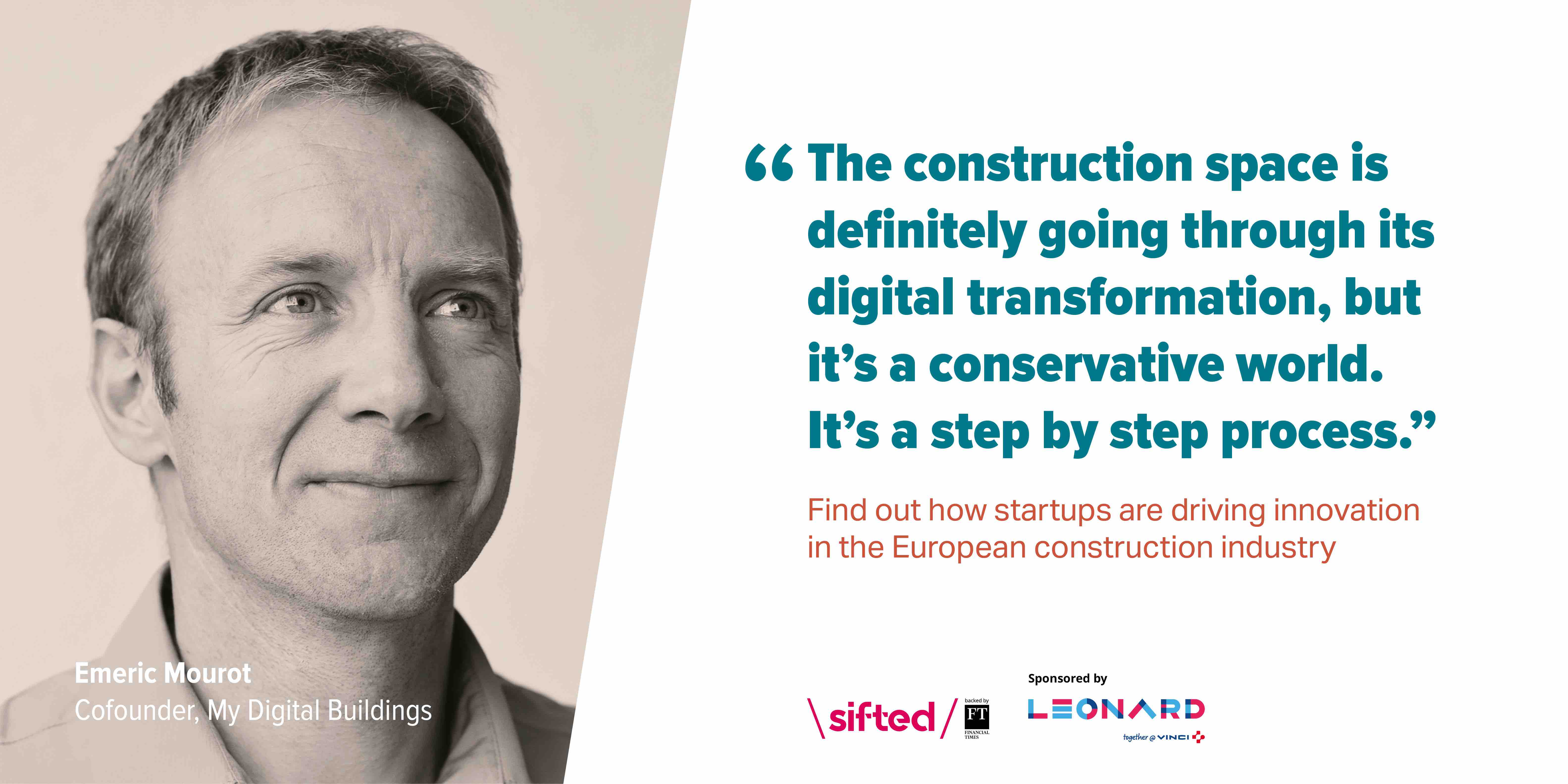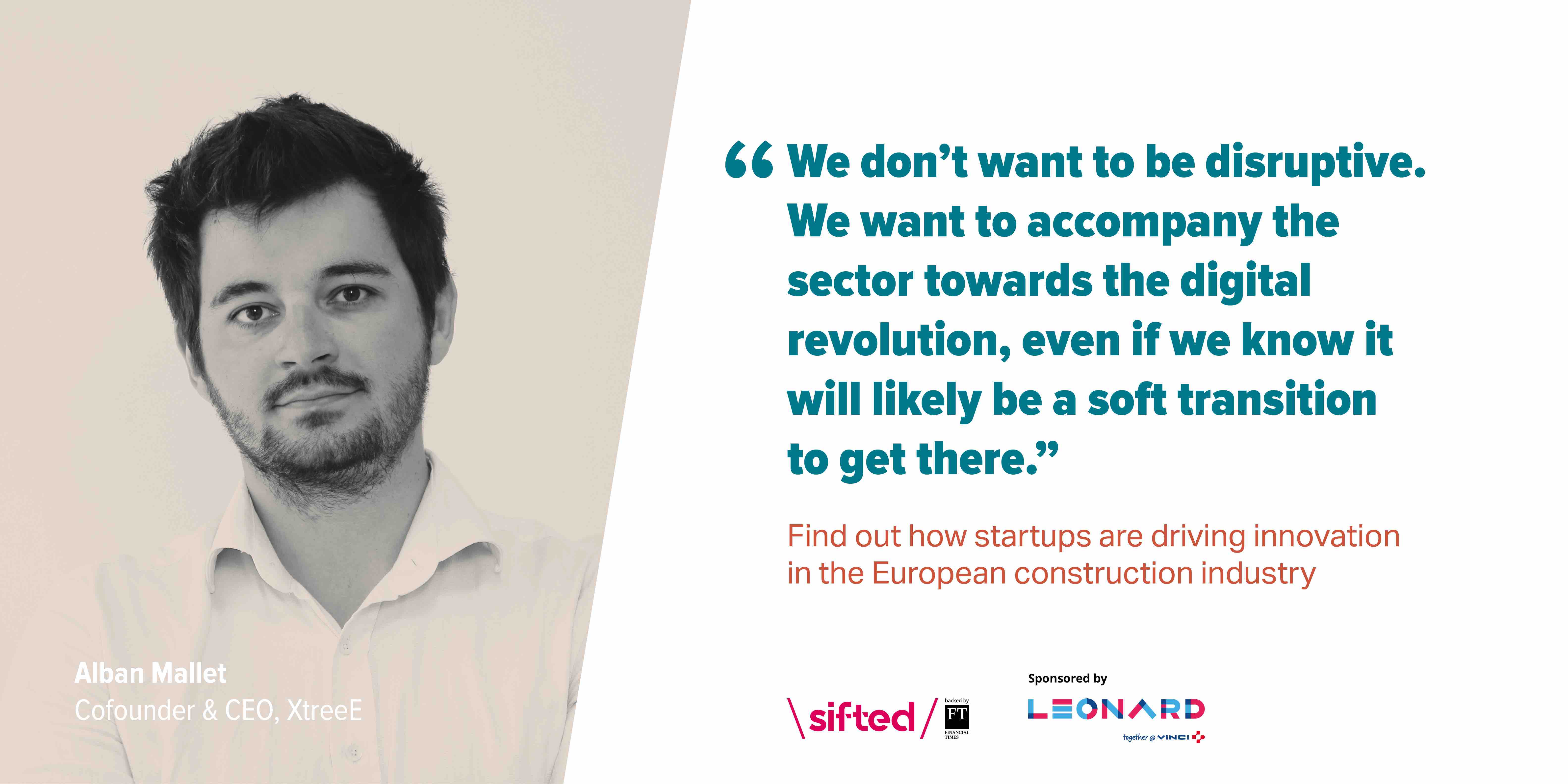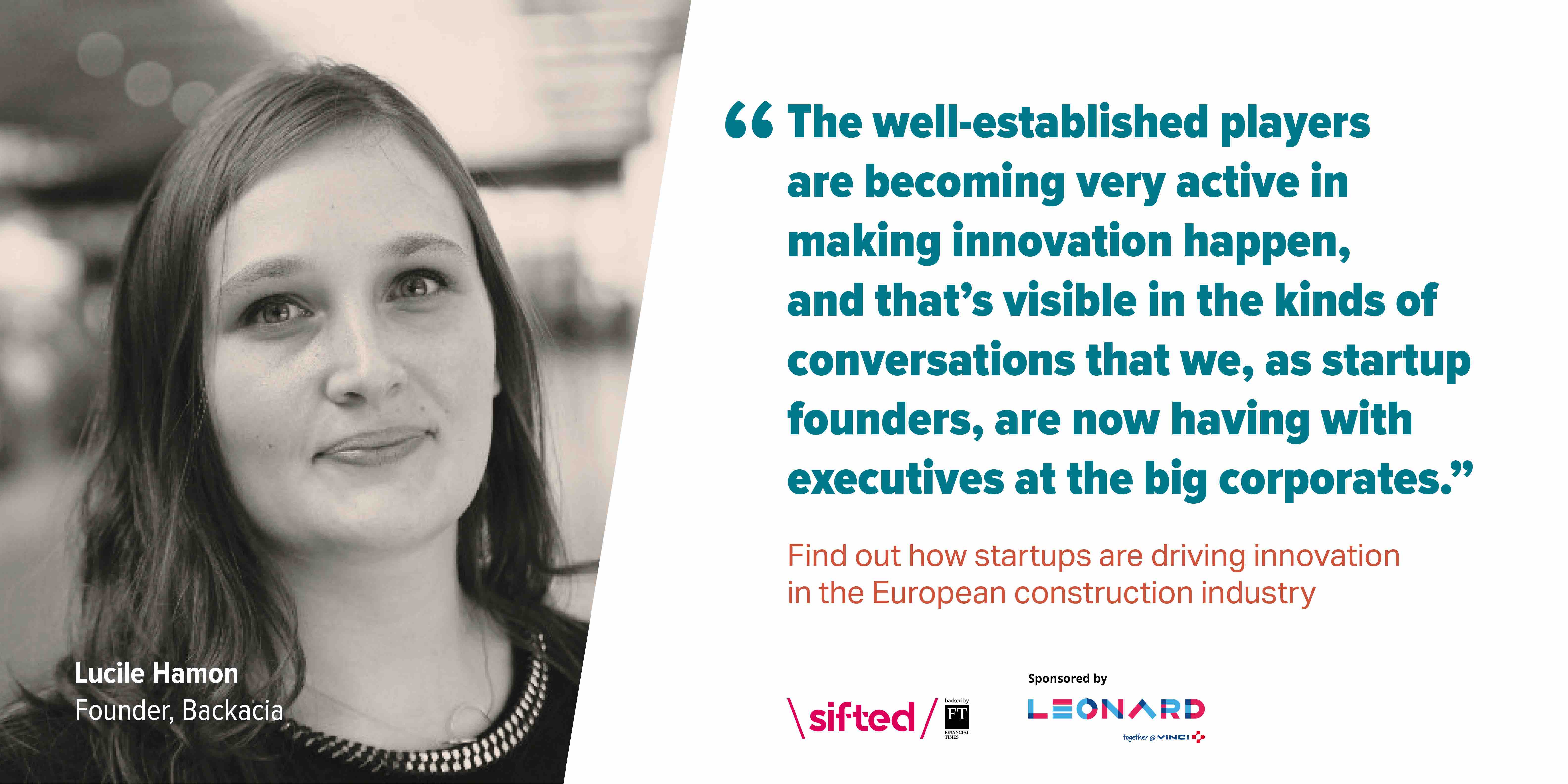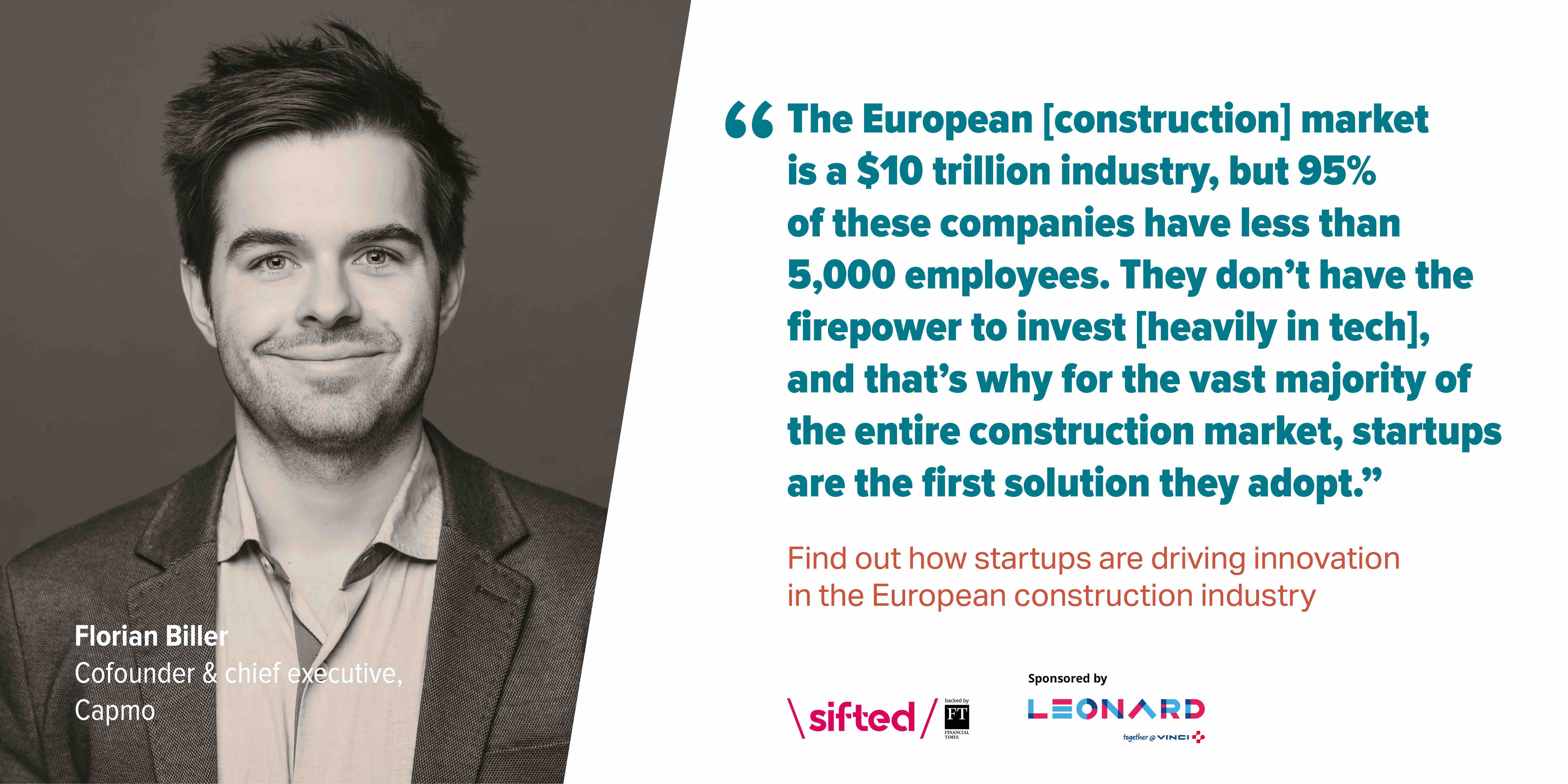Technologies are a decisive asset to enable us to meet the challenge of transforming the construction industry. It is thanks to the products, services and new business models that they inspire, grouped under the banner of Contech, that we will be able to build more cheaply, more sustainably and more safely.
Sifted, the leading digital media on innovation and entrepreneurship in Europe, explains why and how, in a study on Contech in Europe presented by Leonard.
The integration of Contech in Europe, a progressive and collective process
The study examines the past, present and future of innovation in the construction industry in Europe, through interviews with startups and investors in the sector, across the continent.
#Preferring an incremental approach to radical “disruption”

Although construction in Europe is worth €2,000 billion, the industry has not achieved more than a 1% increase in productivity over the past 20 years.
Contech solutions could enable the sector to accelerate the search for productivity, as the coronavirus crisis has begun to show.
However, spreading digital uses in an intrinsically material and particularly fragmented market requires time and the adoption of a progressive approach.
#Working together to achieve rapid results

Unlike other sectors, in the construction industry, start-ups and incumbents are not rivals, but rather have a vested interest in cooperating. To succeed, start-ups must convince construction companies to take more risks by adopting Contech solutions, in a world where innovation budgets are often lacking and where mistakes are an unaffordable luxury.
Because the sector is very constrained, in particular because of the costs and deadlines that weigh on manufacturers. This is why, if the methods must be gentle and progressive, Contech, to convince, must produce rapid results.
On the environmental side, the construction industry would also benefit from adopting a collective, and even systemic, approach to the issues at stake: in 2020, 374 million tons of construction and demolition waste were generated in Europe.
#Building the startup ecosystem

Giving startups the means to intervene in the various phases of a construction project (design, operation, maintenance) would provide relevant technologies to a sector that needs them.
The advent of BIM has already enabled the construction industry to increase productivity, reduce costs and reduce its impact on the environment.
#Giving this new ecosystem the means to achieve its ambitions

Start-ups have the potential to make a difference, but to deliver on their promises, they need to convince builders that their proposals will not impede their operations. They will also have to adapt to the market as a whole, not focusing exclusively on its biggest players, but also reaching out to SMEs.
Adequate and homogeneous regulations from one country to another would also allow technologies to be deployed under favorable conditions, both in terms of health and safety and sustainable development.
Putting technology to work to optimize a construction project
At Leonard, we are mobilizing to ensure that these analyses can be followed by concrete actions. As a partner for the last two years of the world’s leading construction start-up competition, this week we are closing the call for applications for the 3rd class of start-ups to be supported by the SEED program.
#150 projects supported over the past 5 years
Our internal and external acceleration and innovation programs have enabled us to support 100 projects from entrepreneurs as well as VINCI employees and companies over the past 5 years. Discover on our website the 44 projects supported this year, which open new horizons to the productivity of the sector, the reduction of the ecological impact of our businesses and